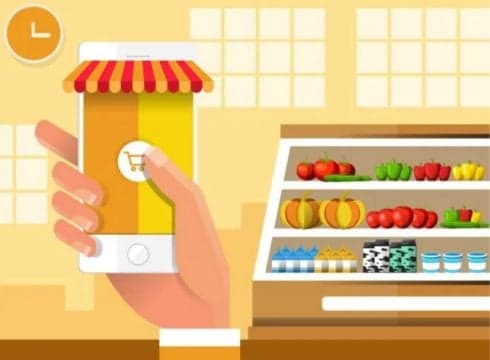India improved its rank in UNCTAD Index by seven places
FMCG ecommerce industry stands at $1.2 Bn: Nielsen
Grocery accounts for 40% online FMCG orders
Inc42 Daily Brief
Stay Ahead With Daily News & Analysis on India’s Tech & Startup Economy
In India, the concept of ecommerce gained popularity after players like Flipkart, Snapdeal and Amazon came into play. However, with the entry of online fast-moving consumer goods (FMCG) selling platforms such as BigBasket, Grofers, among others, the ecommerce industry is growing faster than ever before.
The recent growth of the ecommerce industry in the country is also affirmed by the recent United Nations Conference on Trade and Development’s Business-to-Consumer (B2C) E-commerce Index 2019.
The index, which measures a country’s preparedness to support online shopping, ranked India at the 80th spot last year, however, the country has jumped to 73rd position in 2019.
In the index, European nations held eight of the top 10 spots. The only non-European countries on the top 10 list are Singapore and Australia at the third and 10th positions respectively.
FMCG Driving Ecommerce Growth
The push behind the recent improvement in the UNCTAD index of India might have come from the expanding FMCG ecommerce industry, which according to a recent report by Nielsen India is estimated to be around $1.2 Bn in the country.
The report, affirming the unprecedented growth of the online FMCG market, estimates that the FMCG sales coming from the ecommerce channel are expected to grow to $4 Bn by 2022 in the country.
Amongst all the FMCG items, online grocery order leads the sales with 44% contribution, followed by personal care which accounts for 40% such orders. Household care came third in the list with a share of 13% of all online FMCG orders.
While the report suggests that as of now ecommerce FMCG market stands at around $1.2 Bn, which is 2% of the total FMCG market in India, metro cities account for 6% orders from the online channels of the FMCG total sales.
The notable factor behind this growth could be the repetitive nature of FMCG orders. While a user might order a new mobile or a new gadget once or twice a year, the demand for buying grocery products arises at least once a month for them. The frequent number of these online FMCG orders helps to increase the overall amount of ecommerce orders.
Additionally, these online grocery platforms by providing users with the convenience of doorstep delivery, assured returns in case of damaged products, easy refund options, among others, are also increasing the trust of consumers, which, in turn, are fuelling the growth of the ecommerce industry.
Moreover, with the entry of Flipkart and Amazon into the online grocery delivery space, the growth of FMCG orders are expected to get a further boost. Recently, Amazon India has also partnered with BigBazaar to increase its grocery delivery capabilities.
{{#name}}{{name}}{{/name}}{{^name}}-{{/name}}
{{#description}}{{description}}...{{/description}}{{^description}}-{{/description}}
Note: We at Inc42 take our ethics very seriously. More information about it can be found here.


